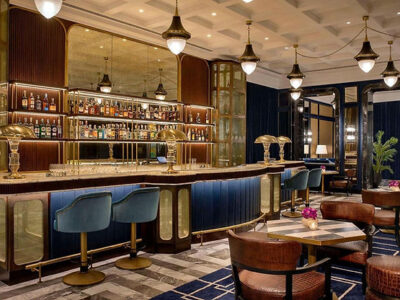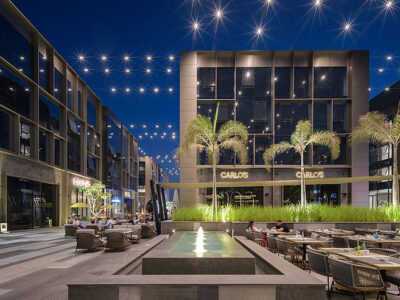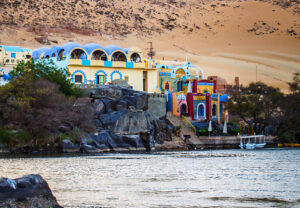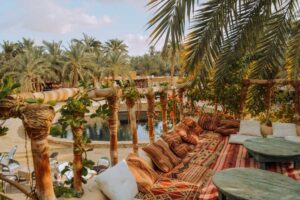When it comes to museums in Egypt, everyone is on pins and needles for the opening of the Grand Egyptian Museum — right next to the Great Pyramids of Giza, it’s going to be the biggest archaeological museum in the world.
But while we wait, that doesn’t mean that there aren’t other museums of interest in Cairo; far from it. From the world-famous Cairo Museum to the newly-renovated National Museum of Egyptian Civilization to the lesser-known but still very interesting Museum of Textiles, there are a bunch of museums worth checking out at least once, whether you’re an Egyptian local or a visitor to Cairo.
1. Museum of Egyptian Antiquities (Cairo Museum)
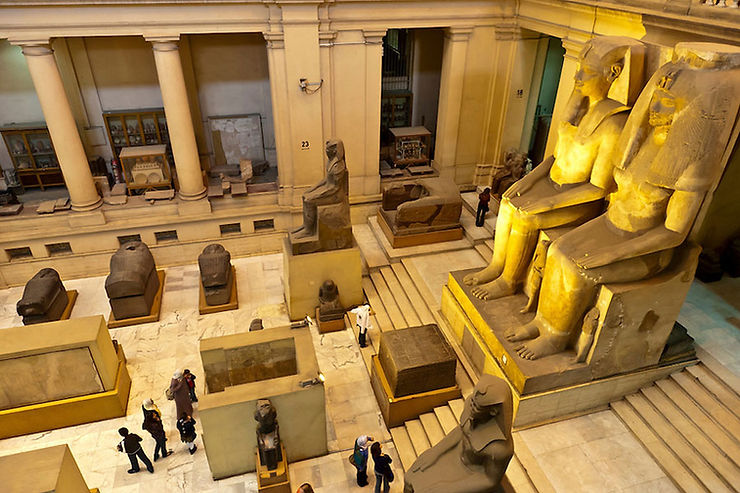
Type of museum: Egyptian history
Location: Tahrir Square, Downtown
Let’s start off with the biggest and most well-known museum in Egypt — the Cairo Museum, otherwise known as the Egyptian Museum. Home to over 120,000 ancient Egyptian artefacts, the Cairo Museum holds the world’s largest collection of pharaonic antiquities.
It’s here where you can see the infamous King Tutankhamun collection, complete with his sarcophagus and gold burial mask.
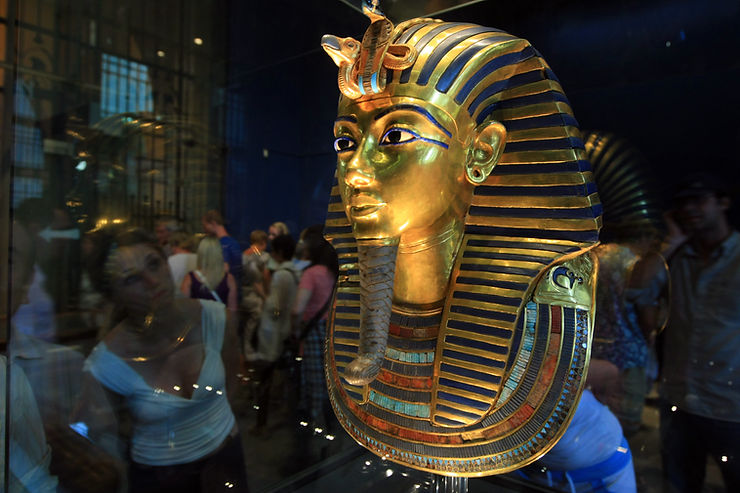
Photo credit: Khaled Desouki – AFP/Getty Images
Local tip: it’s worth going with a guide (there are also relatively knowledgeable touts there who will offer to work as a guide for a negotiable fee), because many of the exhibits don’t have descriptions.
2. National Museum of Egyptian Civilization
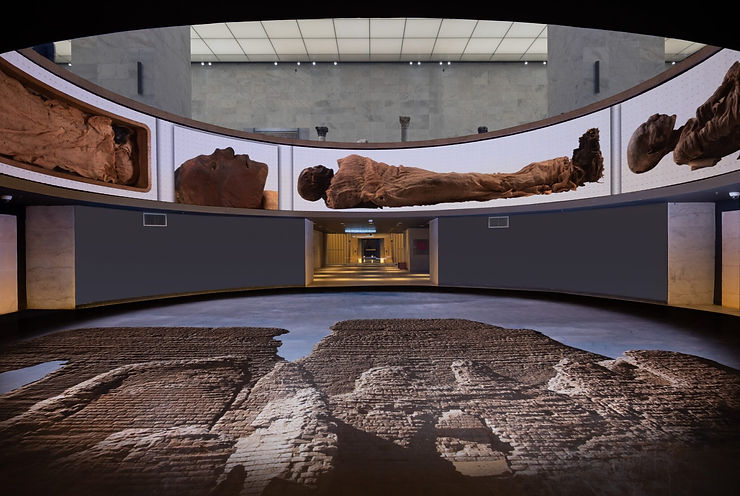
Type of museum: historical
Location: Fustat, Old Cairo
This large museum hosts over 50,000 artefacts from all eras of Egyptian civilization, from prehistoric times, through the pharaonic era up until now – and good news, because it’s been recently renovated, all displays have clearly stated information, so no guide needed!
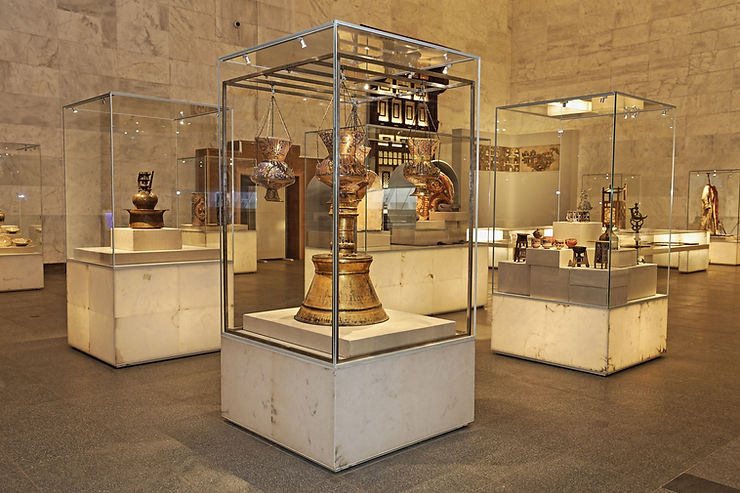
The museum is divided into two sections: chronological and thematic. The chronological runs through Archaic, Pharaonic, Greco-Roman, Coptic, Medieval, Islamic, modern and contemporary Egyptian eras, and the thematic covers Dawn of Civilization, The Nile, Writing, State and Society, Material Culture, Beliefs and Thinking and the Gallery of Royal Mummies.
The National Museum of Egyptian Civilization is also touted as the first museum of civilization in the Arab world.
The gallery of the Royal Mummies is definitely one of the highlights of this museum – in this quiet, tomb-like space, you can see 20 royal mummies that are thousands of years old, including some of the most famous pharaohs of all time like Ramses II.
For more info, here’s their website.
3. Museum of Islamic Art
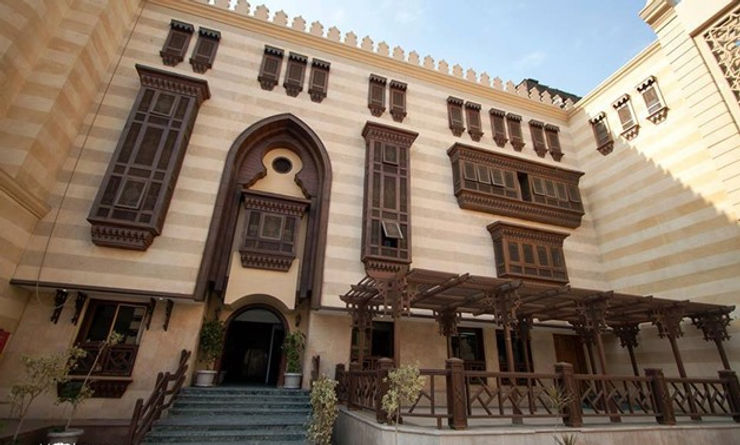
Type of museum: Islamic heritage
Location: Old Cairo
This art museum holds over 100,000 pieces of Islamic heritage from not only Egypt but also Arab and non-Arab countries alike.
Many of the pieces were gathered from the first Islamic capitals of Egypt (Fustat and Askar), prior to the rise of Cairo. Pieces were also selected from the Delta, Fayoum, Luxor and Aswan.
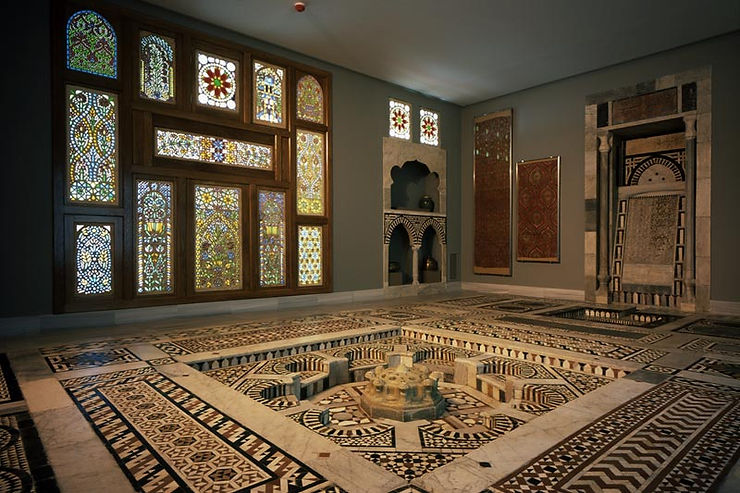
As for displays from outside of Egypt, the Museum of Islamic art is known for its Persian and Turkish pottery as well as some amazing Arabian carpets.
Other collections of note: their wooden collection, which has some of the most beautiful and intricate woodwork from the days of early Islam, as well as beautiful ceramics and lamps.
4. Coptic Museum
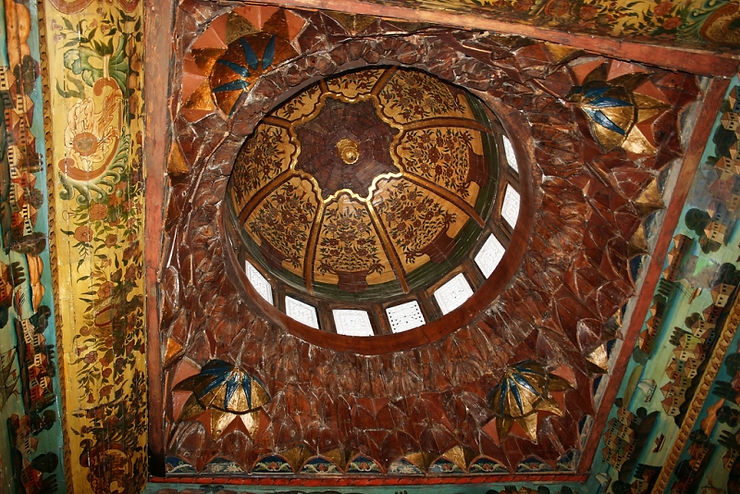
Type of museum: Coptic Christian heritage
Location: Coptic Cairo
Known as the best place to learn about Coptic history in Egypt, this museum hosts over 1,600 pieces, dating back to the early days of Coptic Christianity in the 3rd and 4th century AD.
This museum is known for its bibles written in the 11th and 13th centuries in both Arabic and the Coptic language on deerskin, as well as Christian writings on papyrus dating back to the 6th century.
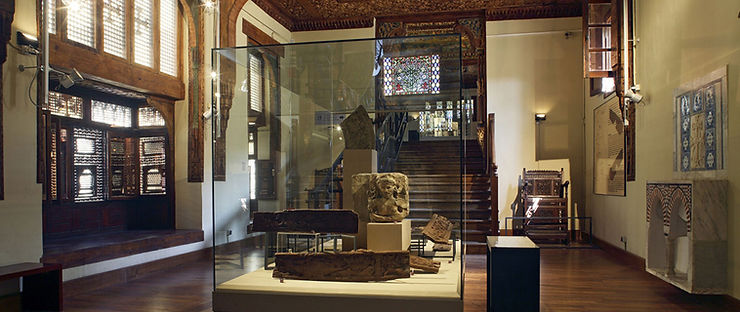
Photo credit: Egyptian Tourism Authority
Other collections of note: its icon display, as well as pottery, glass, metal, wooden and textile collections.
Local tip: the museum is located in an area of Old Cairo called Coptic Cairo, walking distance from some very worth-seeing churches such as the Hanging Church and Mar Girgis church.
Read: Coptic Cairo – A Detailed Local’s Guide
5. Gayer-Anderson Museum

Type of museum: art and Islamic architecture
Location: Old Cairo
The Gayer-Anderson Museum is found in a beautiful historical house in Old Cairo, built in 1631. It’s a great remnant of Islamic architecture at the time.
The house belonged to several different wealthy families over the years, but gained its name during its stint as home of British officer Gayer Anderson in 1935. He amassed a stunning collection of art, furniture, carpets and Egyptian handicrafts that remain in the house until present day.
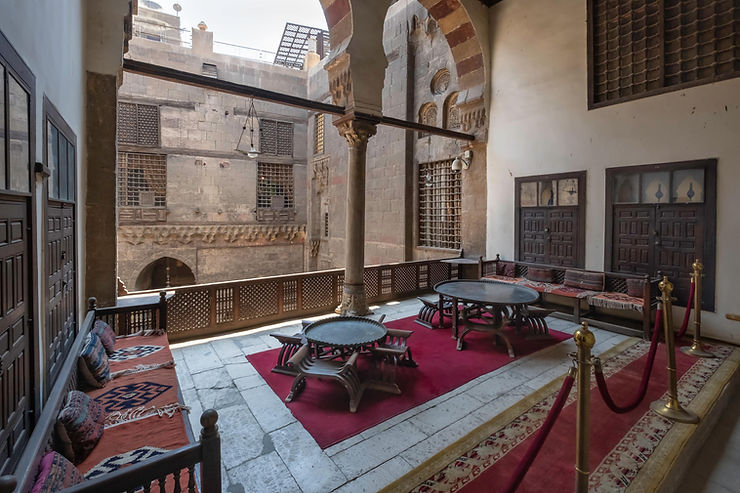
After he left Egypt due to illness, the house became a museum for visitors to appreciate the beauty of the Islamic architecture and the house’s treasures, as well as added collections. It’s also known for its original ‘sabil’, an Islamic water feature with the purpose of providing fresh drinking water to the public. This is rare in a private residential home, more commonly found in mosques.
6. Oum Kalthoum Museum
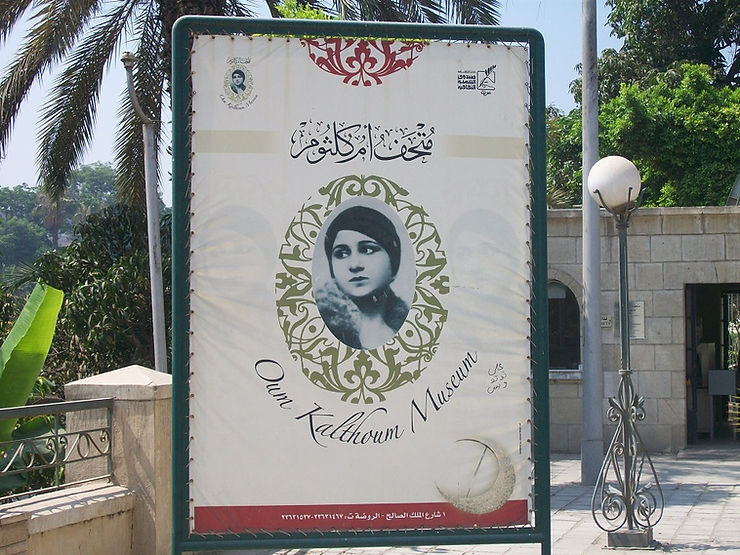
Type of museum: biographical
Location: Manial
If you’re a fan of Oum Kalthoum (if you’re not familiar with the singer, look her up — she’s probably the most famous and beloved Egyptian and Arab artist of all time), then this little museum is for you.
Found on the outskirts of Manasterly Palace in Manial, this museum holds not only relics of the Arab icon’s life and body of work, but also airs a short documentary of her life to really bring the experience full circle.

Photo credit: Yahya Shatila
Because the museum is so small, it’ll only take about 30-45 minutes to check out all the displays and watch the documentary.
Local tip: close by is the Nilometer, which is also worth checking out.
7. Abdeen Palace
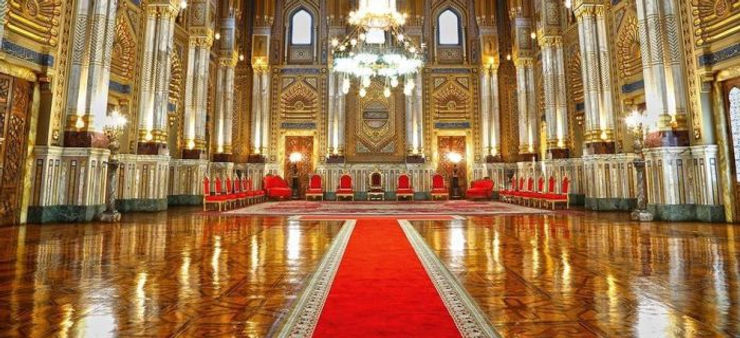
Type of museum: historical
Location: Old Cairo
This palace turned museum was first built by Khedive Ismail in 1863, with the function of being governmental headquarters as well as the designated venue for official events and ceremonies. It was later a royal residence until the monarchy was abolished in 1952.
The museum today is divided into the upper floors, which used to be the living quarters of the royal family, and are now only open for visiting foreign dignitaries.
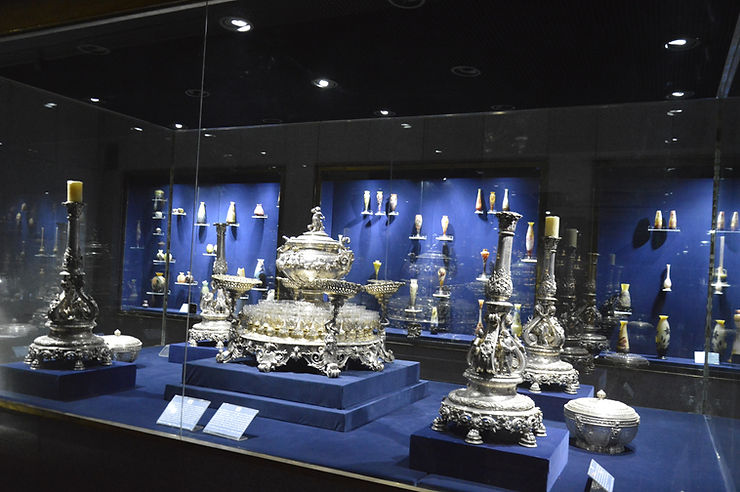
Photo credit: Egypt Today
The lower floors hold the main sections of the museum: the Silver Museum, the Arms Museum, the Royal Family Museum, the Presidential Gifts Museum and the Historical Documents Museum.
8. Manial Palace & Museum
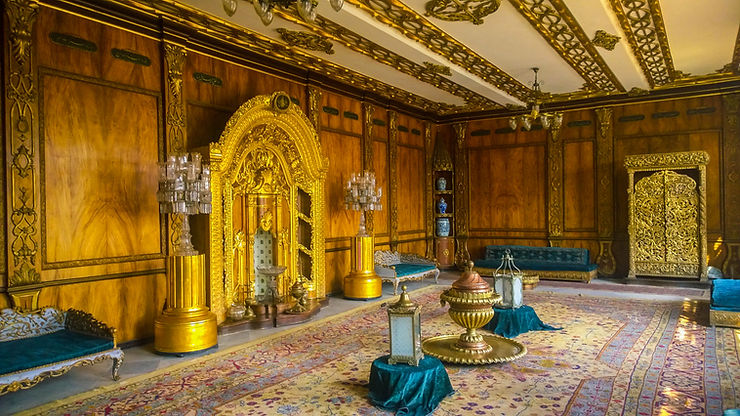
Type of museum: art and history
Location: Manial
This palace was built by Prince Mohamed Ali Tawfik, the first cousin of King Farouk, in 1875 and completed in 1929. The Islamic architectural style is a mix of Ottoman, Persian and Moorish, while the inner design is a marriage between European Nouveau and Rococo.
The palace is home to the prince’s extensive collection of art, furniture, clothing, silver and Medieval manuscripts from the Middle Ages. The ceramic tilework in the mosque and entrance was done by an Armenian ceramist.
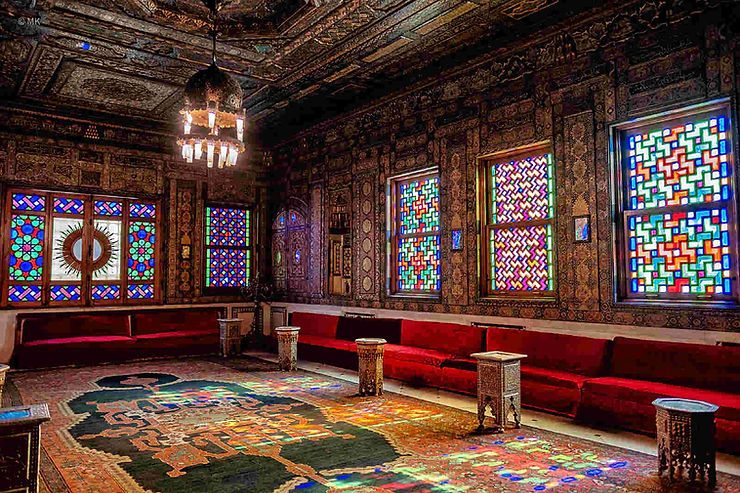
Today the palace and its historical gardens as well as King Farouk’s hunting lodge are all part of a public museum.
9. Egyptian Textile Museum
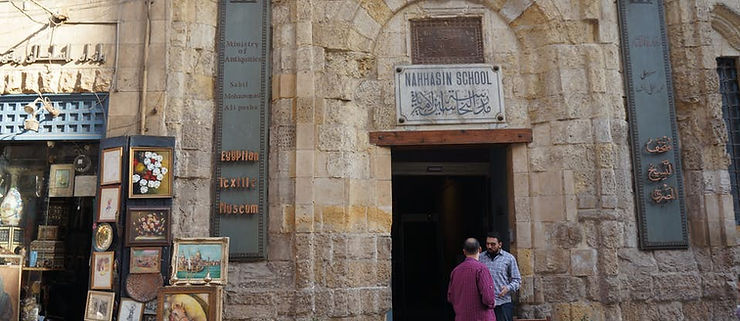
Photo credit: Lonely Planet
Type of museum: textile (obviously)
Location: Moez street, Old Cairo
This little-heard-of museum resides in the heart of Moez street, amidst some spectacular old Islamic buildings. It displays textiles from the pharaonic, Roman, Coptic and and Islamic eras of Egypt.
Amongst some of their notable pieces, they have pharaonic diapers (?), bed covers of female pharaoh Hatshepsut, Coptic tunics and prayer clothes from the ancient Coptic cemetery of El Bagawat and beautifully embroidered Islamic ‘qiswa’.
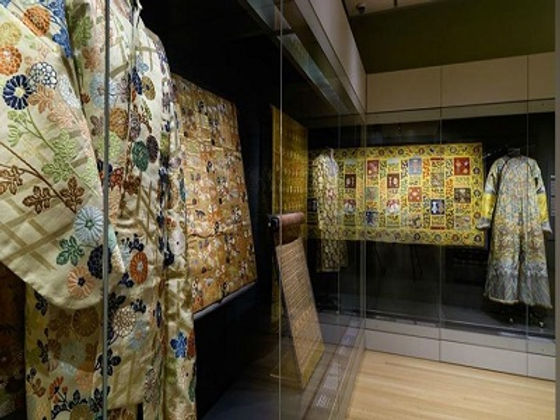
The museum was originally a ‘sabil’, a public water fountain built by 19th century ruler Mohamed Ali as a tribute for his son Ismail, who was killed in battle in Sudan. It then became an orphanage school, and later a primary school (“Nahhasin School”), where both former Egyptian president Gamal Abdel Nasser as well as world-renowned writer Naguib Mahfouz were students.
You might also like: Grand Egyptian Museum: A Local’s Guide To Everything You Need To Know

